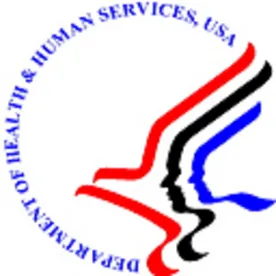On January 5, 2023, the U.S. Department of Health and Human Services (“HHS”) published a notice of proposed rulemaking entitled “Safeguarding the Rights of Conscience as Protected by Federal Statutes” (the “Proposed Rule“). In this article we provide a brief summary of the Proposed Rule, while also examining the statutory amendments and previous rulemakings that create its foundation.
BACKGROUND
The Proposed Rule is the latest in a long line of federal legislation and rulemakings governing the conscience rights of healthcare providers and entities.
The Church Amendments
In the 1970s, the federal government enacted the Church Amendments, 42 U.S.C. 300a–7. These amendments protect individuals and entities that receive federal funds from being required to perform or assist in abortions or sterilizations if it would be against their religious beliefs or moral convictions as well as prohibit discrimination against healthcare professionals based on their involvement in such procedures. The provisions also prohibit entities that receive federal funds from denying admission or discriminating against any applicant for training or study based on their reluctance or willingness to counsel, recommend, perform, or assist in certain health services or research activities because of their religious beliefs or moral convictions.
Coats-Snowe Amendment
Enacted in 1996, Section 245 of the Public Health Service Act (the “PHS Act”) prohibits federal and state or local governments receiving federal financial assistance from discriminating against any healthcare entity that refused to perform, provide training or referral for induced abortions, or make arrangements for such activities. The PHS Act requires post-graduate physician training programs that do not perform induced abortions to be deemed accredited and protects governmental payments provided as reimbursement for carrying out health related activities.
Medicaid and Medicare
The Balanced Budget Act of 1997, Public Law 105–33, 111 Stat. 251 (1997), included conscience provisions for Medicaid and Medicare programs, prohibiting Medicaid managed care-managed organizations and Medicare Advantage plans from prohibiting or restricting a physician from informing a patient about their health and full range of treatment options. The law does however allow an organization or plan to object to a counseling or referral service on moral or religious grounds and does not require them to provide, reimburse for or cover such service. To receive such protection, the organization or plan is required to provide sufficient notice of their moral or religious objections to prospective enrollees. The Medicaid and Medicare statutes also contain conscience provisions related to the performance of advanced directives, religious nonmedical healthcare providers and their patients.
Weldon Amendment
The Weldon Amendment, initially adopted as section 508(d) of the 2005 Consolidated Appropriations Act, prohibits federal funds from being made available to a federal agency, federal program, or to a state or local government, if they discriminate against any healthcare entity on the basis that the entity does not provide, pay for, provide coverage of, or refer for abortions. The amendment defines healthcare entity to include any individual physician or other healthcare professional, a hospital, a provider-sponsored organization, a health maintenance organization, a health insurance plan, or any other kind of healthcare facility, organization, or plan.
Affordable Care Act
The Patient Protection and Affordable Care Act (the “ACA”) passed in 2010 includes conscience provisions that protect individuals and healthcare entities from discrimination on the grounds of their refusal to provide services that cause or assist in the death of any individual, such as assisted suicide, euthanasia and mercy killing. The ACA also allows states to prohibit abortion coverage in their qualified health plans, but requires that such plans provide notice to potential enrollees of the exclusion of abortion coverage. These plans are prohibited from discriminating against any healthcare provider or facility that refuses to provide, pay for, cover or refer for abortions. Additionally, the ACA does not preempt state laws on abortion or federal laws on conscience protection, willingness or refusal to provide abortion, and discrimination based on that willingness or refusal to provide, pay for, cover or refer for abortion. It also does not relieve healthcare providers of their obligations to provide emergency services under federal or state laws. The ACA also includes exemptions to the “individual responsibility requirement” for hardship, religious reasons or membership in a healthcare sharing ministry.
The 2011 Final Rule
On February 23, 2011, HHS issued the final rule entitled “Regulation for the Enforcement of Federal Health Care Provider Conscience Protection Laws” (the “2011 Final Rule”). The 2011 Final Rule aimed to enforce and clarify the conscience rights for certain healthcare providers, individuals, and entities who have religious or moral objections to certain healthcare services. Based on the Church Amendments, the Weldon Amendment, and the Coats-Snowe Amendment, the 2011 Final Rule established a complaint process for individuals and entities that believe their rights have been violated, and required that recipients of certain HHS funding certify that they were in compliance with the conscience protections. The 2011 Final Rule reiterated that healthcare providers do not have to participate in, pay for, provide coverage of or refer for certain healthcare services that violate their conscience if they have a religious or moral objection. Following promulgation of the 2011 Final Rule, its critics argued that the rule could be used to discriminate against certain groups including the LGBTQ community and women, as support found it to be a necessary step in the protection of conscience rights.
The 2019 Final Rule
On May 21, 2019, HHS issued the final rule entitled “Protecting Statutory Conscience Rights in Health Care; Delegations of Authority” (the “2019 Final Rule”). The 2019 Final Rule aimed to protect the statutory conscience rights of individuals and entities participating in the healthcare system, including healthcare providers, insurers, and employers. The 2019 Final Rule required that the Church Amendments, the Weldon Amendment, and the Coats-Snowe Amendment protections be incorporated into the rules and regulations of HHS-funded programs, such as Medicaid and Title X family planning programs. It also expanded the scope of conscience protection to include advance care planning, assisted suicide and euthanasia, and expanded the definition of “assist in the performance” of a procedure to include training, licensing and administrative support that may facilitate a procedure.
The 2019 Final Rule was met with controversy as critics argued that it could lead to a lack of access to essential healthcare services, particularly for marginalized communities already facing barriers to accessing healthcare. Critics also argued that the rule undermined the patient-provider relationship by allowing providers to prioritize their own beliefs over the needs and wishes of their patients, leading to patients being denied care or referred to other providers without their consent, which could be particularly harmful in emergency situations. They also feared the rule would negatively impact public health by allowing providers to deny care that is essential to preventing the spread of certain diseases. For example, if a provider has a religious or moral objection to providing birth control, they could be allowed to deny this service to patients, which could lead to unintended pregnancies and a higher rate of sexually transmitted infections. These critics argued that existing laws already provided sufficient protection of rights of conscience.
The 2019 Final Rule was challenged in court in multiple jurisdictions, including Southern District of New York, the Northern District of California, the Eastern District of Washington, and the District of Maryland. These courts concluded that the 2019 Final Rule was defective in various ways, including that it exceeded the HHS’s authority, was inconsistent with certain statutes, was arbitrary and capricious, and did not comply with the notice-and-comment requirements of the Administrative Procedure Act. The 2019 Final Rule was therefore vacated in its entirety and HHS has been operating under the 2011 Final Rule since its adoption.
THE PROPOSED RULE
The Proposed Rule partially rescinds the 2019 Final Rule, while leaving in effect the framework created by the 2011 Final Rule. The majority of comments received by HHS on the 2018 Proposed Rule (the basis for the 2019 Final Rule) were in opposition. Supporters claimed it would provide needed clarity and strengthen protections for conscience rights in healthcare, but other commenters raised concerns that the 2018 Proposed Rule would create confusion, place unnecessary burdens on covered entities, limit access to patient care, and result in individuals being denied access to services, with vulnerable populations being particularly affected.
The Proposed Rule retains three aspects of the 2019 Final Rule while addressing concerns raised by many of the commenters and echoed in federal district court decisions. In particular, the Proposed Rule retains: (1) the application to the Church Amendments, the Weldon Amendment, and the Coats-Snowe Amendment; (2) several enforcement provisions; and (3) a voluntary notice provision. HHS proposes to expand the category of “federal healthcare provider conscience protection statutes” covered by the Proposed Rule and maintains the Office for Civil Rights (“OCR”) as the centralized HHS office for receiving and investigating complaints under these provisions. The Proposed Rule would retain the 2019 Final Rule’s complaint handling and investigation provisions and its voluntary notice provisions with some modifications, and provide a model notice for the recipients to use and tailor to their particular circumstances. Under the Proposed Rule, HHS would rescind certain portions of the 2019 Final Rule for being redundant, unlawful, confusing or undermining the balance Congress struck between safeguarding conscience rights and protecting access to healthcare, or because significant questions have been raised as to their legal authorization.
The Proposed Rule includes the following:
-
The proposed regulation 45 C.F.R. § 88.2 concerns complaint handling and investigating in regards to the Federal healthcare provider conscience protection statutes. OCR has been delegated the authority to receive and handle complaints, conduct investigations, consult on compliance within the department, seek voluntary resolutions of complaints and coordinate with relevant departmental funding components. The investigation process may include a review of relevant practices, policies, documents, compliance history, and other factors to determine if non-compliance has occurred. OCR may use fact-finding methods such as site visits, interviews and written data or discovery requests. If non-compliance is found, OCR will coordinate with the departmental component responsible for the funding to take appropriate action to assure compliance. If an investigation finds no action is warranted, OCR will inform the parties in writing. If non-compliance is found, OCR will inform the relevant parties and the matter will be resolved informally whenever possible.
-
The proposed regulation 45 C.F.R. § 88.3 relates to the voluntary notice of federal conscience and non-discrimination laws. It encourages entities subject to the federal healthcare provider statutes to post a model notice on their website, in a physical location in their establishment where notices are customarily posted, in a personnel manual or handbook, in employment applications, and in student handbooks for training or study. The notice should be large enough to be read easily and should not be altered, defaced, removed or covered by other materials. The text of the notice may be tailored to address the recipient’s particular circumstances and to specifically address the conscience laws that apply to it. The notice may also include information about alternative providers that may offer patients services the recipient does not provide for reasons of conscience and it can be combined with other non-discrimination notices.
CONCLUSION
Over the past 50 years the federal government has struggled to find the proper balance between the protection of healthcare providers’ rights of conscience and the rights of patients and communities to receive access to the care that they need. The Proposed Rule will certainly not be the last attempt to find the compromises needed to satisfy the stakeholders on this issue, but it does take certain steps that have not yet been attempted in previous iterations of conscience rights legislation and rulemakings.



 />i
/>i

